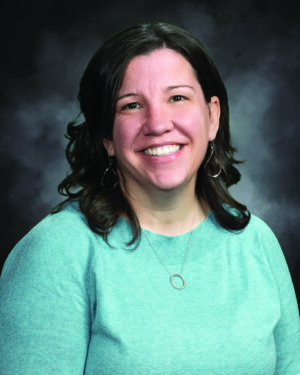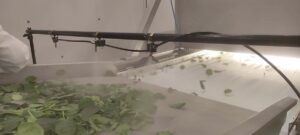Listeria bears close close monitoring, collaboration
I self-identify as a food safety nerd. When a college professor offered me a job in a food microbiology lab, I fell in love with it and never looked back.
Now I’m responsible for food safety innovation and regulatory compliance for Dole Food Company, primarily Dole’s Fresh Vegetables (DFV) division.

I evaluate new interventions and testing methods, stay on top of others’ research and conduct our own. Because I’m responsible for corporate sanitation, I’m in our plants, too.
My background helps me see food safety problems, evaluate options, and ensure adopted solutions work from a food safety and an operations perspective.
WHAT DOES PRODUCE SAFETY LOOK LIKE?
All successful food safety programs are collaborative. Our Food Safety and Quality Assurance team works closely with our operations teams to identify issues; we collaborate to solve problems.
When we traced a December 2021 Listeria monocytogenes (LM) outbreak to harvest equipment, our president brought growers, harvesters and equipment manufacturers together to collaborate on how to reduce risk by improving harvest sanitation.
Dole is a platinum-level contributor to Center for Produce Safety because we see a lot of value in CPS’s produce-specific food safety research. We have developed relationships with CPS-funded researchers; we’ve tapped into their data to help with our decision making. For example, we’ve employed an LM risk assessment model Rutgers University’s Donald Schaffner developed* with CPS funding.
LISTERIA RESEARCH TO WATCH
LM is one of produce safety’s most common enemies, and because of our history with the pathogen I closely watch CPS research on it. It’s important for us to stay on the leading edge of available research, so our work is first and foremost preventive instead of reactive.

My undergraduate advisor used to say that microorganisms don’t read textbooks, so they don’t know how to behave. Clemson’s Paul Dawson, Ph.D., just proved that’s true of LM (and salmonella).
We already knew these pathogens persist in wet conditions. At CPS’s Research Symposium in June, Dawson reported they can also persist on dry packinghouse surfaces after the season is over. His research* validates the importance of keeping an open mind during an investigation and having a rigorous sanitation program for dry areas; I recommend reading this study for specific advice.
DFV’s sister company imports fresh fruit, so I noted a University of California, Davis team’s new findings* that LM can survive (though not grow) on wax-coated fruit; pathogen loads decreased more on stored waxed fruit than unwaxed fruit over time. This work demonstrates the importance of proper manufacturing, handling, cleaning and sanitation to prevent waxes, waxing equipment and surfaces from becoming cross- contamination vectors.
While some CPS projects may not involve your industry segment, the results may. I am watching Texas A&M’s Alejandro Castillo, Ph.D.’s ongoing study of avocado dry storage and sanitation; those findings should be applicable to our dry storage and sanitation.
I’m also watching a project by Spain’s Pilar Truchado, Ph.D., testing* whether bacteriophages – viruses that target specific bacteria – can control LM on leafy greens. This would be a truly novel intervention. We know bacteriophages are effective against pathogens, now let’s figure out how they fit into fresh produce safety.
As a member of Center for Produce Safety’s Technical Committee guiding CPS’s fresh produce food-safety research program, I’ve seen how important it is for our industry to partner with researchers. We can teach researchers about our products and practices to help them design studies that better answer our questions; and we can leverage and learn from their expertise.
The more outreach we do with researchers, the more applicable their science is to us. To become a research collaborator, contact CPS by email at [email protected].
* To learn more about these and other CPS research projects, visit centerforproducesafety.org/funded- research-projects.php.
Amy Parks, Ph.D., is director of food safety and quality assurance innovations and regulatory compliance for Dole Food Company, and a member of CPS’s Technical Committee. She earned her Ph.D. in food microbiology/food safety from Texas Tech University. Prior to Dole, she has held various roles supporting multiple sectors of the food industry including Schreiber Foods, Merieux NutriSciences and McCain Foods.










